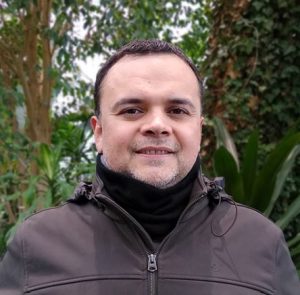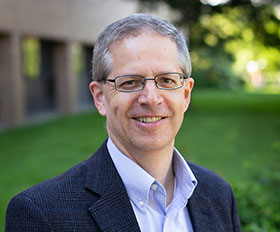Center for Journalism Studies
We’re committed to making journalism better and the study of journalism better.
Journalism plays essential roles in society, but it is under pressure. Our goal is to better understand those pressures and how journalism can better make good on its social obligations. To that end, we also support innovations that provide alternative models for journalism. We believe making journalism better requires systematic study. We foster rigorous research, access to research resources, and opportunities for scholarly collaboration.
Projects and Resources
The Center facilitates journalism projects that model new, better, or innovative ways of doing journalism.
The American Communities Project is our innovation centerpiece. It uses data analysis and on-the-ground reporting to study the cultural, socio-economic, and political changes that are remaking the U.S. ACP receives external support from the Robert Wood Johnson Foundation and the Arthur M. Blank Family Foundation.
The Center facilitates research projects that enhance our understanding of how journalism does (and sometimes doesn’t) work.
We research a wide range of journalism areas:
- Media & Technology
- Institutions & Organizations
- News & Content
- Reception & Engagement
The Center for Journalism Studies is the U.S. partner for the Worlds of Journalism Study. A collaboration of research of journalism in over 100 countries, the study seeks to “better understand the worldviews and changes that are taking place in the professional views of journalists, the conditions and limitations under which journalists operate, and the social functions of journalism in a changing world.” Project team members include Tim P. Vos and Esther Thorson.
The Center is collecting and curating social scientific measures and qualitative protocols used to study news and journalism-related phenomena.
These resources include items such as:
- Content analysis codebooks
- Survey questionnaires
- In-depth interview questionnaires
Collaborations
Project collaborations between the School of Journalism, Michigan State University and around the world
We support collaborative projects, both within Michigan State University and across the world.
The Worlds of Journalism Study is just one such collaboration. The Germany-based project is supported by UNESCO, the International Federation of Journalists, and Reporters Without Borders.
We also work with the International Collaboratory on Crisis Communication, which examines how crises are communicated to the public through traditional and social media before, after, and during a crisis.
Visiting Scholars
We welcome journalism scholars who seek to work on collaborative projects. Scholars typically have support from the home universities or external funding agencies.
More information coming soon.
Marcos Paulo da Silva

Marcos Paulo da Silva is an associate professor at Federal University of Mato Grosso do Sul (UFMS), Campo Grande, Brazil, former president (2019-2021) and former scientific director (2017-2019) of Brazilian Association of Journalism Researchers (SBPJor), and former vice-coordinator (2017-2020) of the Journalism Theory Division of the Brazilian Society for Interdisciplinary Studies in Communication (INTERCOM).
Francisco Paulo Jamil Marques

Francisco Paulo Jamil Marques is an associate professor at the Federal University of Paraná, Brazil, CNPq research fellow, and lead researcher at the Research Group on Media, Politics, and Technology (PONTE).
Qing Wen
Qing Wen is a doctoral student at the Communication University of China, Beijing, China.
People
Featured are the founder and acting director Tim P. Vos, Coordinator of CJS Initiatives Manuel Chavez, and Coordinator of CJS Research Resources Serena Miller.
Faculty

Tim Vos
School of Journalism DirectorDepartment
JournalismTim P. Vos is Professor and Director of the Michigan State University School of Journalism. Vos is an International Communication Association (ICA) Fellow and a past president of the Association for Education in Journalism and Mass Communication (AEJMC).
Faculty

Manuel Chavez
ProfessorDepartment
JournalismDr. Chavez works on issues of international relations, security, democracy, and the press. He studies models of access to information, accountability and transparency, especially related to the news media in Latin America.
Contact
Faculty

Serena Miller
Associate ProfessorDepartment
JournalismSerena Miller (Ph.D., Michigan State University) is an Associate Professor at Michigan State University, former Methodology Associate Editor for Review of Communication Research, and a former Associate Editor for Journalism Studies.